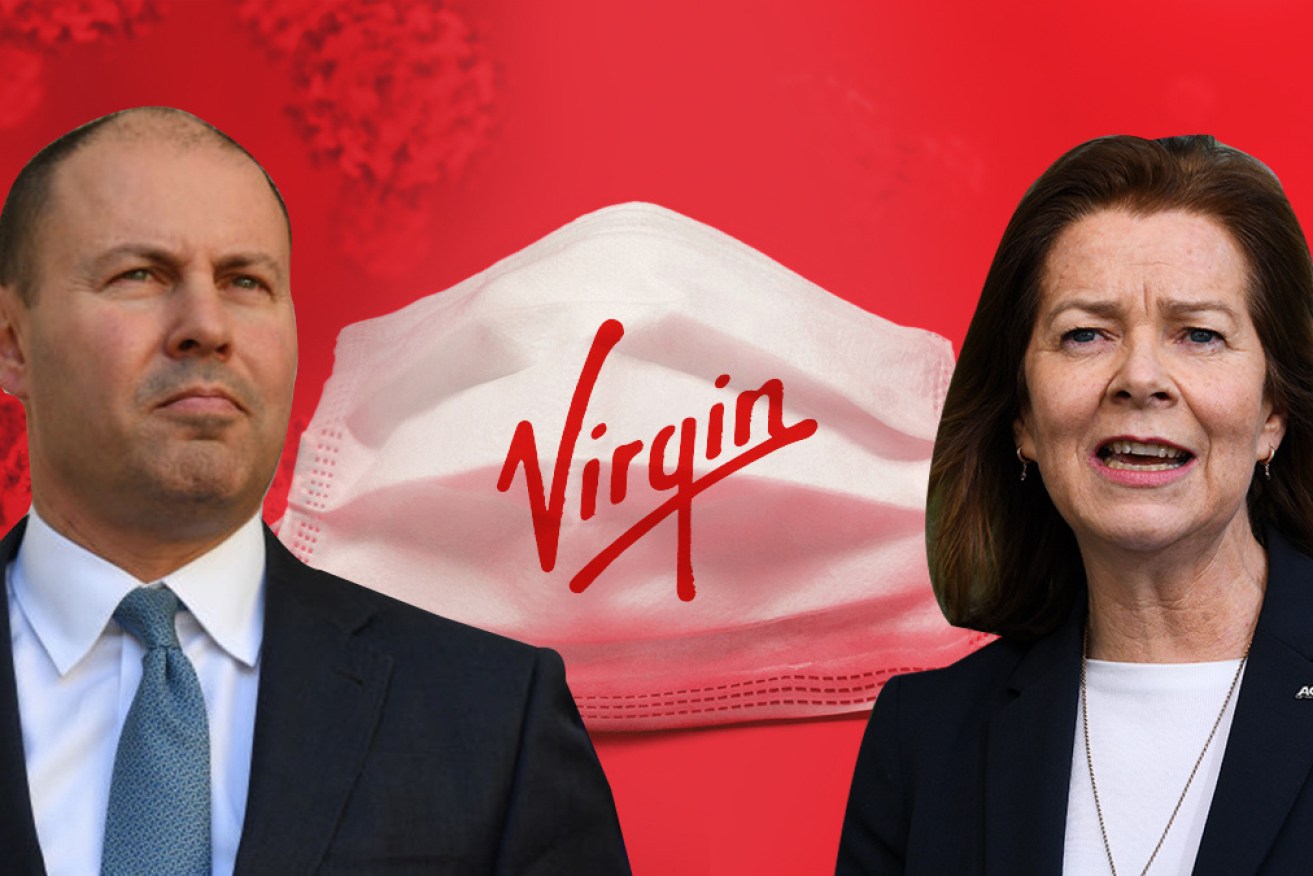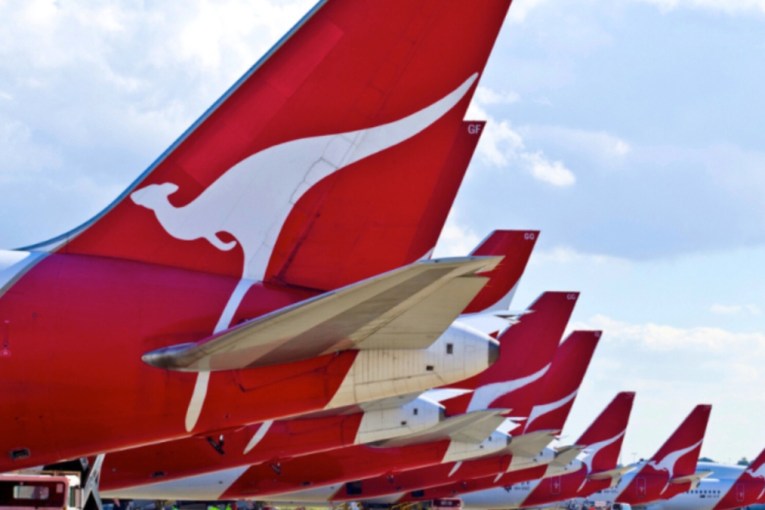‘This is not Ansett’: Frydenberg firm on refusal to bail out Virgin


The unions have butted heads with the Treasurer over how to save jobs at Virgin Australia. Photo: The New Daily
The federal government has rebuffed a union push to rescue Virgin Australia, which went into voluntary administration on Tuesday, leaving 16,000 jobs under a cloud.
Australian Council of Trade Unions president Michele O’Neil said the Morrison government must urgently intervene to save thousands of jobs and help Australia retain two airlines.
But Treasurer Josh Frydenberg said “the government was not going to bail out five large foreign shareholders with deep pockets who, together, own 90 per cent of this airline”.
“This is not liquidation. This is not Ansett. This is not the end of the airline. Rather, as the company itself has said in its statement, this is an opportunity for the company to recapitalise and come out stronger on the other side of the coronavirus crisis,” Mr Frydenberg said.
“Our objective is a market-led solution. Our objective is two commercially viable, major domestic airlines operating in Australia.”
Early on Tuesday, Virgin told the ASX it had entered voluntary administration to “recapitalise the business” and emerge in a “stronger financial position on the other side”.
It crumbled under the weight of $5 billion in debt and a cashflow crisis caused by coronavirus restrictions.
However, new Deloitte administrator Vaughan Strawbridge ruled out redundancies. There had been an “extraordinary” amount of interest in buying Virgin, he said, with more than 10 parties involved.
Tweet from @richardbranson
Mr Strawbridge said a solution would be found within “a matter of months”. In the meantime, staff would continue to be paid and recently stood-down workers would receive JobKeeper payments.
“This is a tough day for our airline … (but) we’re certainly not collapsing,” Virgin Australia CEO Paul Scurrah said.
“It has been a necessary decision made by our board, brought on by an unprecedented global pandemic, COVID-19.
“This is not just something that is hurting Virgin Australia. We know it’s hurting the industry globally and is the worst aviation crisis we’ve ever seen in our history.”
Virgin’s decision to enter voluntary administration comes after the federal government rejected its request for a $1.4 billion bailout following the introduction of coronavirus travel restrictions.
The company also failed to raise funds from international shareholders Singapore Airlines, Etihad Airways, HNA Group, Hanshan, and Richard Branson’s Virgin Group.
Mr Branson has, however, offered his luxury island resort in the Caribbean as collateral.
Last month, Virgin stood down roughly 8000 of its 10,000 workers until at least the end of May.
Other airlines could compete with Qantas
UNSW aviation lecturer and former Qantas chief economist Dr Tony Webber told The New Daily a government bailout didn’t make sense, as Virgin was in a weak financial situation even before the pandemic.
Dr Webber said Virgin’s finances had been in a bad way for almost a decade, after its high-risk “Game Change” strategy failed to pay off.
Rolled out by former chief executive John Borghetti, the ambitious plan involved Virgin trying to carve a big slice of the lucrative corporate market from rival Qantas.
Dr Webber said Virgin spent millions on the plan, and increased capacity “in anticipation of business coming its way”.
“But it didn’t, and Qantas grew with it – and that devastated both of their earnings in 2014 and 2015,” Dr Webber said.
“Qantas was too good at keeping its corporate clients … people are just rusted on to Qantas.”
Tweet from @AlboMP
Dr Webber acknowledged that a second airline in Australia was necessary to protect consumers from a Qantas monopoly.
But he told The New Daily that, should Virgin fail to make it out of administration, a duopoly could be achieved without the government bailing out a company that is 90 per cent foreign-owned.
He said Air New Zealand or Singapore Airlines were both large and established enough to be viable alternatives – adding there were enough profits to be made for both parties to be interested.
“Yes, Virgin does employ a lot of people – 10,000 to 11,000 people – yes the competition does generate lower airfare outcomes, but can those outcomes be achieved with another different carrier?” Dr Webber said.
As many as 16,000 jobs on the line
Meanwhile, ACTU president Michele O’Neil said it wasn’t too late for the government to intervene.
“If the Morrison government does not immediately intervene, they will be responsible for the biggest airline collapse in Australia’s history,” Ms O’Neil said.
“This is do or die for the Morrison Government. They can choose to save the jobs of 16,000 Virgin Australia workers, or they can choose to abandon all these workers and hand Qantas a monopoly.”








